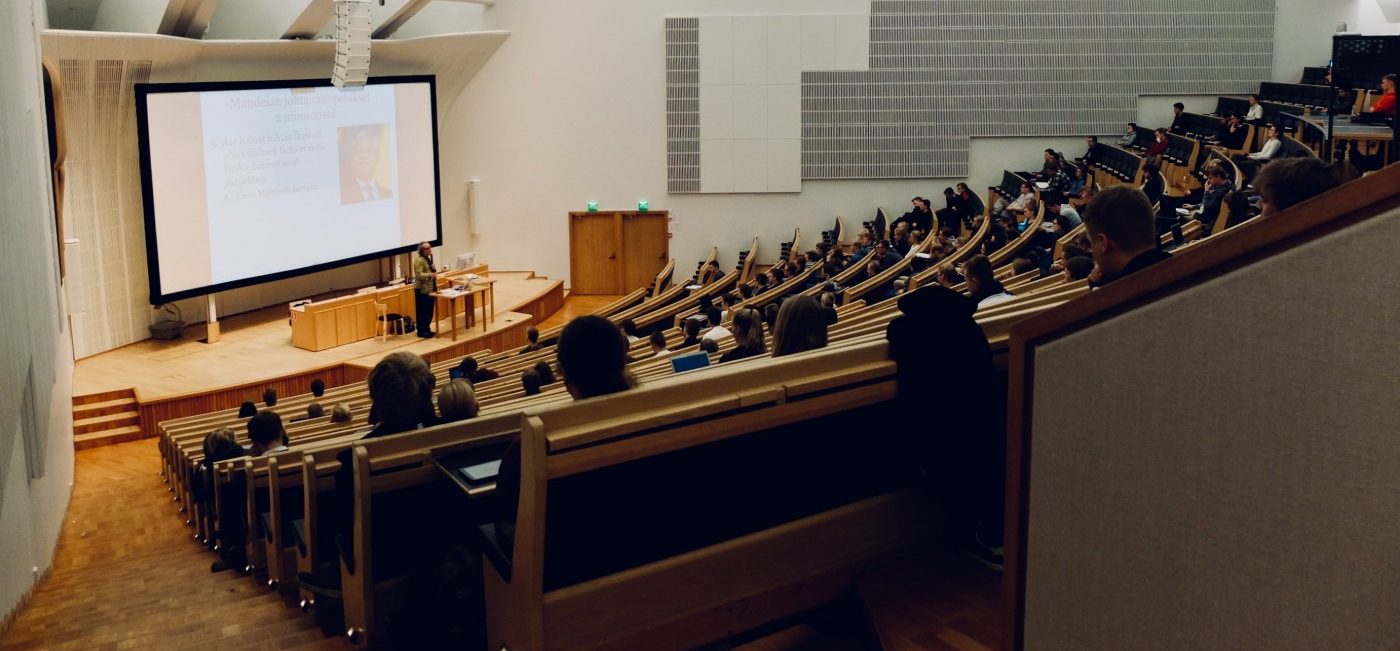Recording lectures: who should get to decide?
Lectures. A building block of university learning, without which student timetables across the country would almost certainly be incomplete. Whilst far from homogenous, they often introduce a topic, consider contested definitions, and set out key themes. It is precisely the subjectivity, the malleability of lectures as a learning tool that animates the debate over recording them. After all, do lectures ultimately belong to the individual lecturers who shape and write them? Are lectures a form of sacrosanct oral transmission of knowledge from the lecturer to ‘the lectured’, that must be protected from recording at all costs? Or does recording and preserving them actually safeguard access to learning for those who can’t attend in person? There are three issues I want to consider: the issue of attendance, of recordings being (re)used, and finally questions of ownership.
Keeping lectures offline is perhaps the last safeguard against academics addressing a sea of empty chairs
First, perhaps the strongest argument in favour of keeping lectures unrecorded is boosting attendance. With most departments at Warwick, including Politics and International Studies (PAIS) and the School of Modern Languages and Cultures (SMLC), neither marking attendance at lectures nor including them in student monitoring points, keeping lectures offline is perhaps the last safeguard against academics addressing a sea of empty chairs! That said, we should equally be aware of over-romanticising lectures as enclosed hubs of infallible knowledge transmission, membership of which is limited to the in-group of those who physically enter the lecture theatre. If the academic conversation can and should continue after the lecture has taken place, then it can surely also continue online. At university, unlike school, students are generally seen to be individually responsible for their own learning. Making lectures accessible in digital formats crucially makes them adaptable to different learning styles. Doing so can remove both the need and expectation to turn up to a timetabled in-person lecture, i.e. at a fixed time, in a fixed room, which can sometimes seem overly rigid.
This helps to break down the hierarchy that exists in some minds of unrecorded over recorded, by questioning the belief that attending in-person as opposed to watching a recording is the better way to learn for every student, when in reality this is a particularly subjective and individual choice. However, I would argue that sometimes being present in the room can help, to avoid students becoming little more than viewers of lectures rather than participants in them. Admittedly, whilst not every lecture involves active participation by the audience in the lecture delivery itself (quite unlike a seminar, which is constructed and led by the contributions of its participants), they are far from passive affairs. From my own experience in PAIS, engagement strategies used in lectures have included raising hands in response to questions, and discussions with the person next to you. When done well, these can elevate the discussion. The responses (or lack thereof) of students may be useful for lecturers to judge how new information is being received.
Recording lectures can remove barriers to access that are being imposed upon many amidst a rise in the cost of living
Amidst concerns over attendance, the Higher Education Policy Institute’s (Hepi) 2023 Student Experience Survey found that the percentage of students taking up paid work has risen by 10% since last year, now at 55%. For many, working increased hours to cover accommodation and other costs means decreased flexibility to fit work around study. In this case, recording lectures can remove barriers to access that are being imposed upon many amidst a rise in the cost of living.
Whilst the wider discussion over the merits and downsides of learning on-demand has been ongoing for several years, the Covid pandemic imposed a sense of urgency that appears to have hastened the transition to it. In order to allow continuity of learning, lectures were mostly pre-recorded and made available to students. But this was not without its mishaps. For instance, there have been cases where lectures recorded online have been reused in subsequent years. Whilst I don’t think this is a problem in and of itself, as recordings can serve as a useful store of knowledge for topics that don’t go out of date, there have been reports of departments routinely reusing online lectures recorded by academics after they have sadly died. One such case at Bristol University led to distress among students.
Recordings being watched back cannot always offer the same feeling of being physically involved in the discussion.
This brings me to my final point, namely who owns lectures? Given the research and effort that preparing lectures demands, it is reasonable to treat them as the intellectual property of individual lecturers, or alternatively of academic departments. Concerns over unauthorised distribution are valid; we should remember that most university lectures aren’t ordinarily open to members of the public – these form part of dedicated public lecture series – and so students being able to access them, whether recorded or not, is arguably just as much a privilege as we may consider it a right. It is important to note here that at Warwick, adjustments to policies prohibiting individual recording by students are available on a case-by-case basis, where “recording can form a reasonable adjustment for disabled students under the Equality Act 2010.”
In short, equal student experience matters, as does equal access to learning. Yet, as is the case for more interactive lectures, recordings being watched back cannot always offer the same feeling of being physically involved in the discussion. Lectures can look very different between departments and disciplines, and even between modules and individual lecturers. So, a university-wide policy on recording would not be helpful. It seems policy on a departmental level, formulated in ever closer dialogue with learners, continues to remain the best option.

Comments